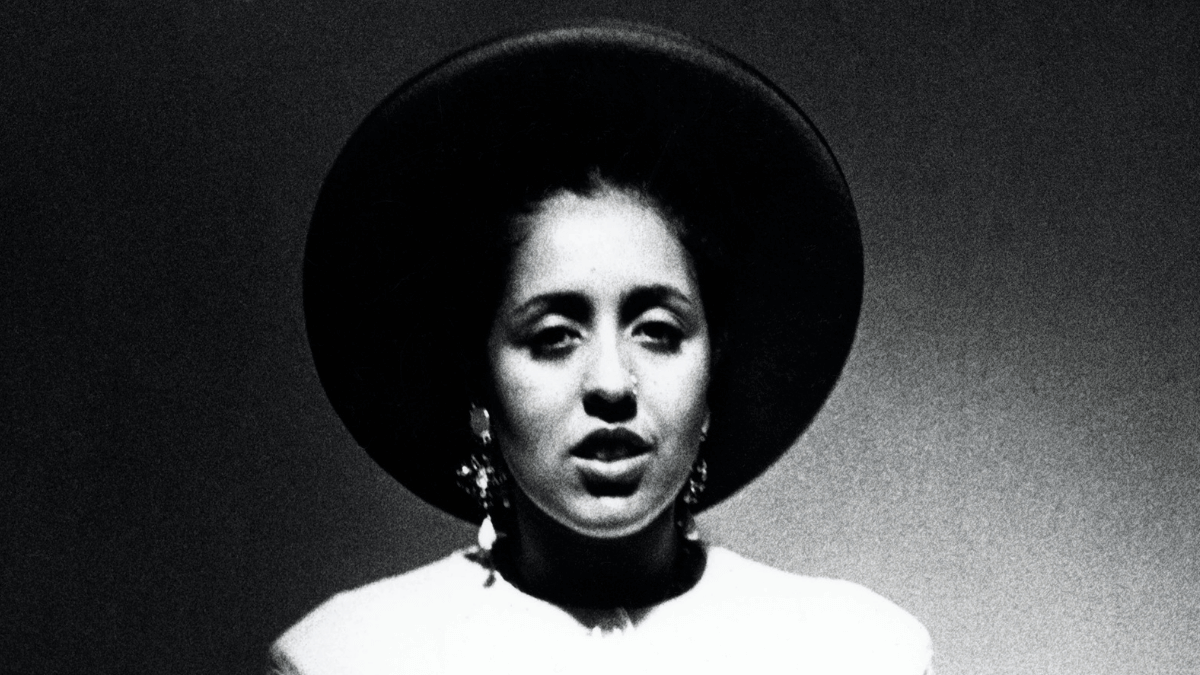Poly Styrene: I Am A Cliché: A From-the-Heart Bio of the Godmother of Afropunk and Riot Grrrl
By Jennie Punter
Rating: B-plus
“Some people think little girls should be seen and not heard / But I think / ‘Oh bondage, up yours’ / One, two, three, four . . “ - (“Oh Bondage! Up Yours!” by X-Ray Spex, 1978.
In the pantheon of U.K. punk music, Poly Styrene is a singular presence. Born Marian Elliott in Brixton in 1957, the daughter of a British mother and Somalian father, she emerged during punk’s first wave as both an embodiment and an outlier of its culture.
Since her death of cancer in 2011, at age 53, her legacy has continued to rise, and her artistry is being examined anew.
X-Ray Spex in concert.
As the front person of X-Ray Spex, she fascinated fans and the music press with her voice, candor, and DIY fashion. Though the band lasted only three years, the impact of her performance style and radical songwriting—addressing such themes as consumerism, identity, and feminism—has endured, lighting the way for the Afropunk and Riot Grrrl movements.
This might seem like ample fertile ground for an eye-opening, canon-cracking music documentary, but Poly Styrene: I Am A Cliché—which hits select Canadian theatres and VOD this weekend—turn out to be (and to cover) much more than that.
This is thanks to the intimate perspective of Celeste Bell, Styrene’s daughter, who serves as both co-director (with doc veteran Paul Sng) and narrator/guide.
Rather than open predictably, with a rollicking performance clip, the film begins solemnly with Bell describing her mother’s funeral.
Poly Styrene
“The funeral was surreal,” says Bell in voiceover. “All these people I’ve never met.” She’s not ready to become the caretaker of her mother’s legacy, she tells us. Five years later, she receives several boxes of her mother’s archives—photos, poetry, diaries—from Styrene’s former manager and feels empowered to explore the question: ““Who was she before me?”
While the film follows a mostly chronological course, there is an artful back-and-forth between the personal and public archival material, and between Bell’s voice—musing aloud on her own history and mixed emotions—and those of admiring musicians or cultural figures.
The only people actually shown talking are in archival footage. Everyone else is heard in voiceover: new interviews with family members, rockers of note (Kathleen Hanna, Thurston Moore, Neneh Cherry), and Styrene’s music contemporaries. There’s also Bell’s narration and haunting readings of Styrene’s poetry and diary entries by actor Ruth Negga.
This artistic choice allows us to keep the main character always in mind and in focus, rather than being momentarily distracted by what a talking head is wearing or sitting in front of.
The dreamy, easy strains of “Germ Free Adolescents” accompany a gentle flyover of the modern British coastline as we drift into the past and a black-and-white world. A TV interviewer refers to Poly Styrene as one of the most “interesting” songwriters around, asking her to explain the origin of her stage name. “Plastic is disposable,” she answers. “That’s what pop stars are.”
We go even further back to her tough childhood in Brixton, London. Against stock footage of kids in housing projects and similar social settings, Styrene’s sister describes them as original “latchkey kids,” who were frequently subjected to racist attitudes. In those days, the common term for a biracial person was “half caste.” We hear one of Styrene’s poems about that term.
Sometimes it feels as if we’re being taken through the X-Ray Spex years again to pick up loose threads of the story or take a different angle. We hear about the dark events that came toward the end of Styrene’s fame, which also coincided with the deterioration of her mental health.
At age 21, Styrene was misdiagnosed with schizophrenia. It was eventually determined that she was suffering from acute bipolar disorder. She often could not care for Bell. She went to India for a spell, then joined the Hare Krishna movement when she returned to England, bringing her daughter to live with her at the Hare Krishna manor. At age eight, Bell climbed out a window to leave with social workers and move in with her grandmother.
While mother and daughter reconcile as adults, Poly Styrene: I Am A Cliché feels like a deepening and extension of that process. The film adds an authentic emotional resonance to an important story about an exceptional human who was singing her mind at a pivotal moment in 20th-century pop-culture history.
Poly Styrene: I Am A Cliché is directed by Celeste Bell and Paul Sng. The film opens at the Hot Docs Cinema in Toronto and Vancity in Vancouver on February 4, 2022, and other Canadian cities throughout the winter and spring.



